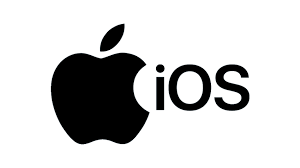
iOS app development involves the creation of mobile applications specifically designed to run on Apple's iOS operating system. iOS is the operating system used by iPhones, iPads, and iPod Touch devices. Developing apps for iOS allows businesses and individuals to reach a large user base of Apple device users. Here are the key steps involved in iOS app development:
Planning and Conceptualization: Define the app's purpose, target audience, and desired features. Conduct market research and competitor analysis to identify opportunities and ensure the app meets user needs.
Wireframing and Design: Create wireframes or prototypes to visualize the app's layout, user interface, and navigation flow. This helps in obtaining early feedback and making adjustments before proceeding to the actual design phase. Apply UI/UX design principles to create an appealing and user-friendly interface that aligns with Apple's design guidelines.
Development: iOS app development primarily involves using the Swift or Objective-C programming languages, along with the Xcode Integrated Development Environment (IDE). The development process includes coding the app's functionalities, implementing user interactions, handling data storage, and integrating with APIs and external services.
Testing and Quality Assurance: Thorough testing is crucial to ensure the app functions as intended and provides a smooth user experience. Test the app for bugs, errors, usability issues, and compatibility across various iOS devices and versions. Techniques such as manual testing, automated testing, and user testing can be employed.
Deployment to the App Store: Once the app is tested and ready, it needs to be prepared for deployment on the Apple App Store. This involves creating an iOS App Archive, signing it with appropriate certificates and provisioning profiles, and submitting it to the App Store for review and distribution. Adhering to Apple's guidelines and policies is important during the submission process.
Maintenance and Updates: After the app is released, ongoing maintenance is necessary to ensure its performance, security, and compatibility with new iOS versions and devices. Regular updates may be required to introduce new features, fix bugs, and address user feedback.
We typically use Xcode as the primary development environment for iOS app development. Xcode provides tools, simulators, and debugging capabilities to streamline the development process. They may also utilize various frameworks and libraries provided by Apple, as well as third-party libraries and APIs to enhance functionality and accelerate development.
When selecting an iOS app development service, consider the expertise and experience of the development team or agency like